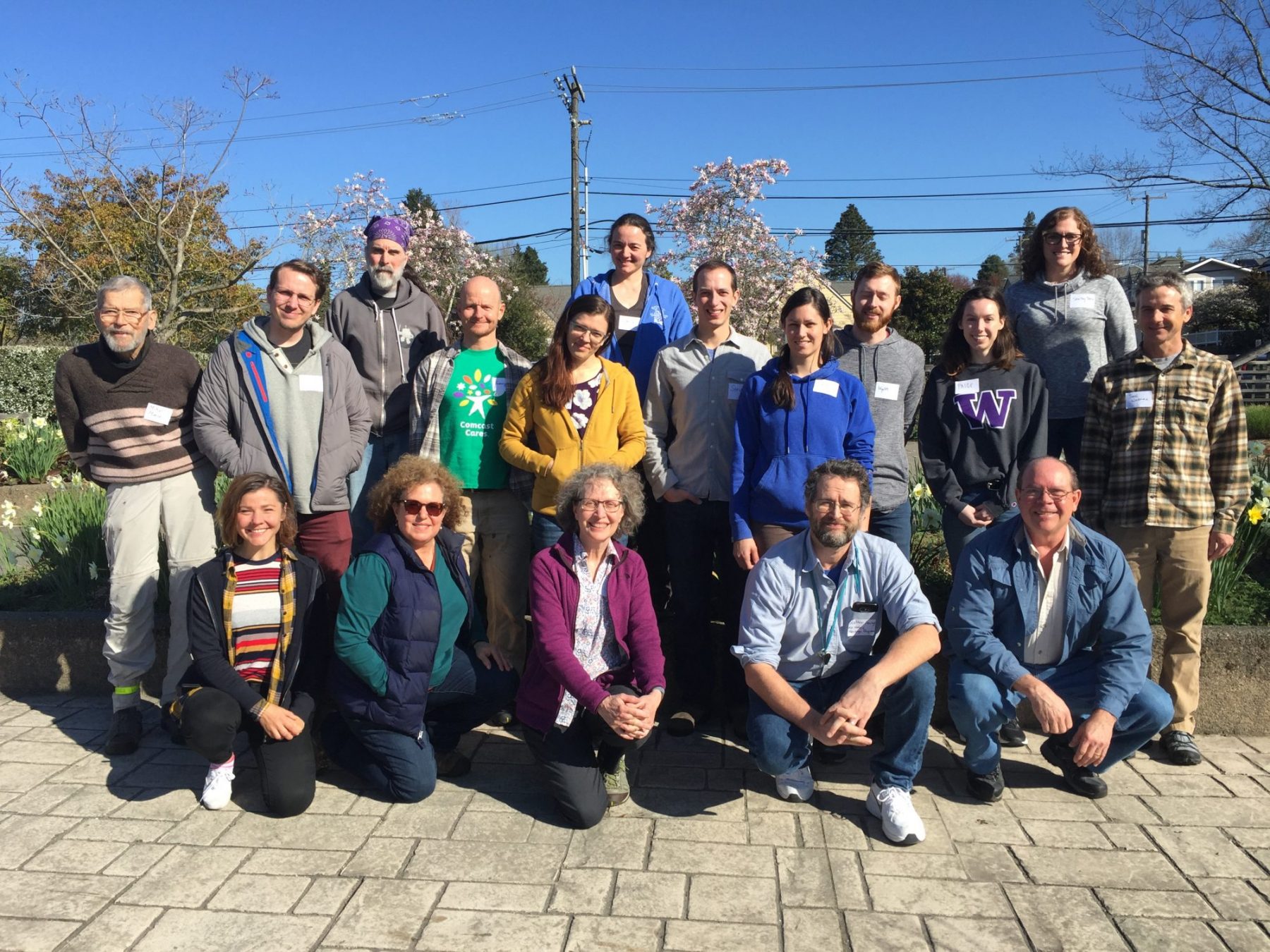
Rare Care trains volunteers to monitor rare plant populations in order to assess growth trends and determine population threats across Washington. Monitoring is an essential component of conservation. It addresses the question, “What is needed to preserve species, communities, and ecological systems?” Monitoring provides the information to assess the status of biological populations and communities for the purpose of developing and directing management actions. This information is gathered as a critical first step in the conservation of rare plant species.
Read Rare Care’s latest 2023 Rare Plant Monitoring and Seed Collection Annual Report
Volunteers are the backbone of this undertaking. The program relies heavily on volunteers to collect status information on rare plant populations. Volunteers engage in individual assignments and group monitoring projects. Rare plant monitoring training is offered each year in the spring in Seattle and in response to demand in other parts of the state.
Check out this feature on rare plant monitor, Steven Clark, searching for gorge daisy.
